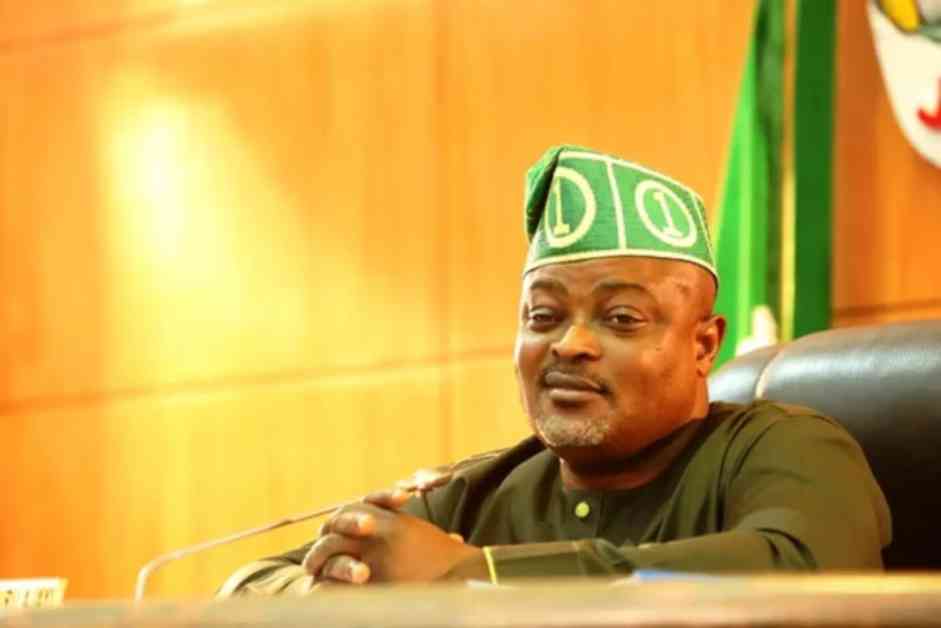Obasa’s Downfall: A Tale of Hubris, Intrigue, and Power
Mudashiru Obasa, the former speaker of the Lagos State House of Assembly, met his untimely demise on Monday after being impeached by Assembly members. The impeachment came amidst allegations of fraud and financial infractions, leading to the removal of Obasa from his prominent position.
Hubris, Battles, and Intrigues
During his nine-year tenure as speaker, Obasa faced numerous battles, including accusations of misusing funds and attempting to retain power term after term. Despite these challenges, his reign seemed unassailable until his sudden downfall on Monday.
One of the most significant allegations against Obasa was the withdrawal of a staggering N43.5bn for backup vehicles for lawmakers, sparking outrage and contributing to his impeachment. Additionally, allegations of diversion of funds to personal accounts and firms added to the mounting pressure on Obasa.
The Final Straw
The turning point for Obasa came during a crucial moment when Governor Babajide Sanwo-Olu presented the state’s 2025 budget. Instead of focusing on the budget, Obasa made controversial remarks about his potential gubernatorial ambitions, which were perceived as haughty and disrespectful by prominent figures in Lagos politics.
Obasa’s remarks, coupled with a history of alleged disrespect towards Governor Sanwo-Olu, led to a significant shift in power dynamics. The Governor’s Advisory Council, including prominent leaders like Tajudeen Olusi, raised concerns about Obasa’s conduct and its impact on the state’s political landscape. This pivotal meeting with President Tinubu marked the beginning of the end for Obasa’s reign.
Political Fallout and Speculations
As news of Obasa’s impeachment reverberated through Lagos, speculations arose about the underlying motives and implications for future political dynamics. Some sources linked Obasa’s downfall to his purported ambition to run for governor in the 2027 elections, while others emphasized the need for a change in leadership to maintain the state’s political stability.
Despite the swirling rumors and political maneuvering, Governor Sanwo-Olu distanced himself from Obasa’s impeachment, emphasizing the separation of powers and the legislative nature of the decision. The intricate web of power struggles, personal ambitions, and political alliances continues to shape the unfolding narrative of Obasa’s downfall in Lagos.
In the end, Obasa’s story serves as a cautionary tale of the perils of unchecked power, the consequences of hubris, and the intricate dynamics of political intrigue. As the dust settles on this chapter in Lagos politics, the legacy of Mudashiru Obasa stands as a reminder of the fragile balance between ambition and accountability in the corridors of power.



























